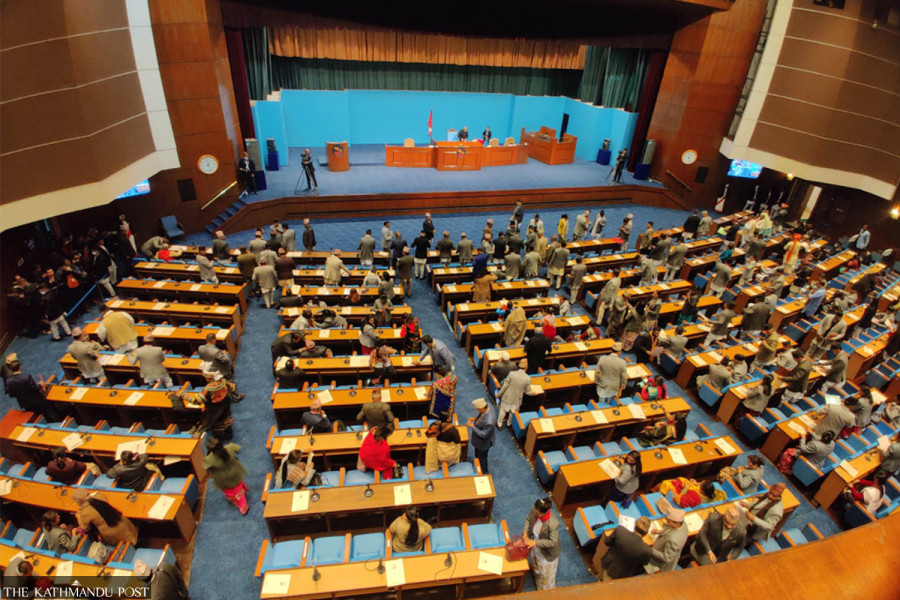Editorial
Keeping the House in order
The new cohort of first-time MPs is expected to avoid becoming pawns in the hands of a handful of leaders.
The new members of the House of Representatives, barring a few, took oath of office on Thursday. With almost 50 percent new (and mostly young) faces, the Parliament this time is expected to be vibrant. There will surely be a face-off between the old and the new, the experienced and the hot-blooded. And with this will come the responsibility of maintaining the decorum of the house and upholding the principles of parliamentary democracy. That will be one of the lesser challenges.
This time, more than anything else, people expect the quality of parliamentary debates to rise and for the house to play a more constructive role in both progressive law-making and holding the government to account. But it is only when the parliamentarians realise the transformative possibilities of their roles as people’s representatives rather than members of a political party or faction can they truly serve the people. For this, they need commitment, courage and conscience. Whether the new MPs can fulfil their duties over the next five years remains to be seen, but the onus is also on the citizens and the media to continuously track the behaviour of their chosen ones and keep them on the right track.
The citizens will feel a sense of ownership of the state only when the accountability of the Parliament, the bedrock of the democratic system, is strengthened. To assure a sceptical public, the parties in Parliament should learn from past mistakes and this time look for ways to enrich the parliamentary proceedings, even if this means staying out of power. And in the same vein, the representatives of political parties as well as independents should commit to the ideals of participatory democracy.
Yet that is not what we see. Even after its considerable drubbing in recent elections, the CPN-UML is looking for partners, even among the five-party coalition led by the Nepali Congress, to form the next government. The party that has come a distant third is vying for the prime minister’s post, and the one that stood fourth is itching to join the government. Whether they are new or old faces, they all seem to believe that just because they are parliamentarians they must also join the government. That some parties have been given the mandate to stay in the opposition and to keep a close on the government’s functioning has been lost on one and all.
A stable government has been a pipe dream ever since the country restored democracy in 1990. In the 2017 elections, people had given a resounding mandate to the Nepal Communist Party, formed after the merger of the CPN-UML and the CPN (Maoist Centre). But stability remained elusive as intra-party tussles soon led to the party’s breakdown and the downfall of the KP Sharma Oli-led government. Consequently, parliamentary democracy was derailed, and people’s dreams of stability and prosperity were further delayed. This time, the house members, and at least the new cohort of first-time MPs, are expected to avoid becoming pawns in the hands of a handful of leaders who will try to use them to fulfil their power ambitions. They will have done half their job as people’s representatives if they only show the determination to always act out of their own conscience rather than blindly following orders from above.




 13.12°C Kathmandu
13.12°C Kathmandu














